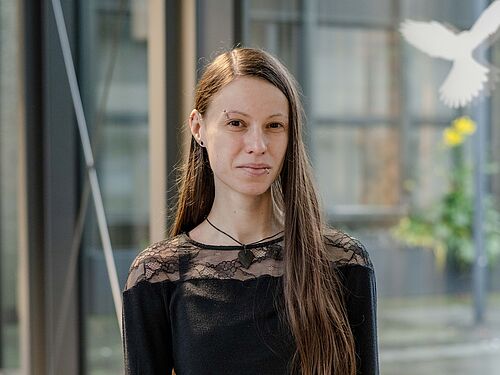When? 21 February 2024, 3-4 p.m. inaugural lecture, followed by a get-together with fngerfood and drinks
Where? Building MC, Open Space
Registration: https://terminplaner6.dfn.de/b/6fb796e3a0b3d8aa6936a05d5aa2aef8-569629
Since December 2022, Professor Karola Marky has been researching with her Digital Sovereignty research group at the Horst-Görtz-Institute for IT Security, Faculty of Computer Science of the Ruhr University Bochum, and as Principal Investigator in the Cluster of Excellence CASA “Cyber Security in the Age of Large-Scale Adversaries”.
“Information that we share can be used to influence our behavior,” explains the researcher. In the digital world, it could be used in targeted advertising, such as suggestions based on your search history while shopping online. “This is quite useful. But it can also lead to me buying something I would never have bought otherwise. In the worst case, you can lose your freedom because of this influence. Unfortunately, as humans we are all prone to these things,” Marky says.
Marky’s research focuses on the psychological underpinnings of people’s behavior to develop mechanisms to protect them from being manipulated. She wants to investigate more realistic IT security usage scenarios using innovative methods such as virtual reality. With a creative approach, she aims to make IT security more personal and accessible. One example is her use of a 3D printer to create figurines for two-factor authentication. “I printed a cat that you have to touch in a certain way for login, but it could be almost any shape,” she says. “IT security can be slightly dry. Stuff like that could make it cooler.”
The Faculty of Computer Science cordially invites all interested parties to Karola Marky’s inaugural lecture.
Abstract. Digital sovereignty describes the capacity for informational self-determination of individuals, organizations and states. Digital environments and their design play a central role here, since numerous well-researched mechanisms can be used to influence the behavior of users in both directions. The lecture gives an introduction to digital sovereignty and everyday mechanisms that influence the decisions of users and make it difficult for them to act according to their own wishes.
General note: In case of using gender-assigning attributes we include all those who consider themselves in this gender regardless of their own biological sex.


